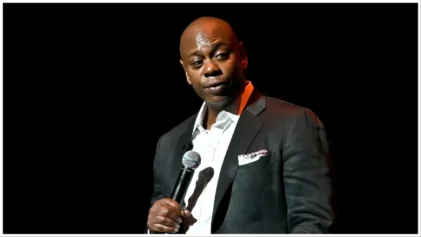Secretary of State Hillary Clinton traveled to the Middle East today to help negotiate an end to the conflict between Israel and the Palestinians in Gaza, as the international community is eager to convince Israel that it will be to the country’s detriment to send ground forces into Gaza.
Israel has called up 75,000 reservists to supplement the forces that have been massed at the border, clearly intended to send a message to Hamas, the Islamist group that controls Gaza, that there will be significant pain for the Palestinians if they continue to send rockets into Israel. Their death toll has already hit 115.
But as a people who have long felt denied of their land and who have suffered economic deprivation at the hands of Israel, Palestinians are largely supportive of Hamas’ aggression against their oppressor. That is the difficulty of forging peace and permanent ceasefires in the region—every few years, a new generation of young men become teenagers and young twenty-something angered at their fate and intent on making Israel pay for taking their land. While the more moderate forces in Israel and Palestine still call for a two-state solution to the 70-year standoff, increasingly young Palestinians don’t believe in Israel’s right to exist at all—and many are willing to die for their cause.
Much of the negotiating pressure has fallen on Egypt and its President Mohamed Mursi, who has become an important player in the standoff because of his closeness to Hamas due to his membership in the Muslim Brotherhood. Not only Secretary of State Clinton but also U.N. Secretary-General Ban Ki-moon are focused on Cairo, where Ban called for an immediate ceasefire and said an Israeli ground operation in Gaza would be a “dangerous escalation” that must be avoided.
Ban had held talks in Cairo with Arab League chief Nabil Elaraby and Egyptian Prime Minister Hisham Kandil before traveling to Israel for discussions with its Prime Minister Benjamin Netanyahu. Ban planned to return to Egypt on Wednesday to meet with Mursi, who was unavailable on Tuesday due to the death of his sister.
The situation is complicated for Netanyahu because he faces elections in two months. The last thing he wants is for the Israeli populace to see thousands of bloody deaths of Palestinians at Israel’s hands just before they go into the polls. But he also has to let the Israeli people see that his administration will not tolerate allowing Hamas to indiscriminately send rockets into Israel, as far away as Jerusalem and Tel Aviv, putting half of the Israeli 7 million population at risk.
Israel’s leaders have weighed the benefits and risks of sending tanks and infantry into the densely populated coastal enclave two months before an election, and indicated they would prefer a diplomatic path backed by world powers, including U.S. President Barack Obama, the European Union and Russia.
“Before deciding on a ground invasion, the prime minister intends to exhaust the diplomatic move in order to see if a long-term ceasefire can be achieved,” a senior Israeli official, speaking on condition of anonymity, said after the meeting with Netanyahu and high-ranking Israeli officials.
While the diplomatic efforts at a ceasefire have taken on an air of increasing urgency, the situation has become yet another nightmare for the 1.7 million Palestinians living in Gaza as they await Israeli bombs, as defenseless as goldfish in a bowl. This isn’t the first time they have tasted the wrath of the Israeli army—just four years ago an estimated 1,400 were killed by the Israelis.
Israel points to the bombs that Hamas has been directing at Israeli targets as the reason for its massive show of force, but as some observers point out, the residents of Gaza have felt imprisoned in Gaza for years and should be excused for occasionally protesting their condition.
“As Israel mobilizes 75,000 reservists, masses troops on the border in preparation for Operation Cast Lead Mark II, attempts to assassinate Hamas officials and indiscriminately bombs residential neighborhoods, Barack Obama pats Netanyahu on the shoulder, saying Israel has every right to defend itself,” writes Linda Heard in Gulf News. “Think about what he is saying. Israel, the mighty nuclear-armed Israel, supposedly protected by its Iron Dome, has the right to defend itself while the Palestinians clearly have no such rights. Why should they, when they do not have rights over their borders and airspace or the right to import materials to rebuild homes, schools and hospitals? Palestinians have no rights at all even when international law and UN Security Council Resolutions are on their side.”


